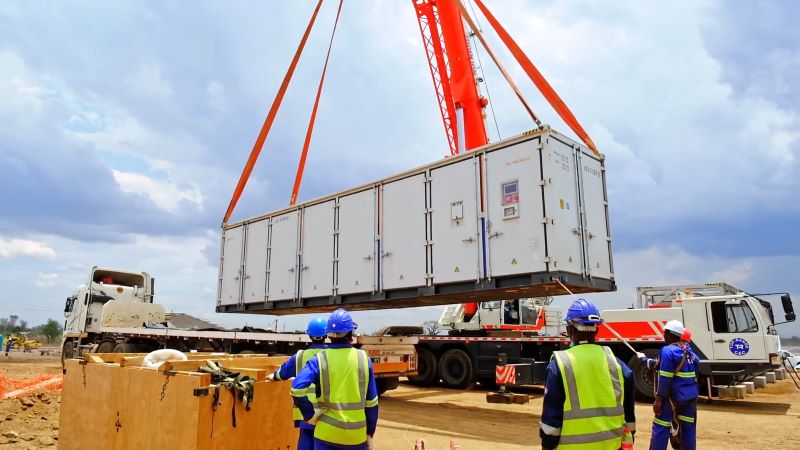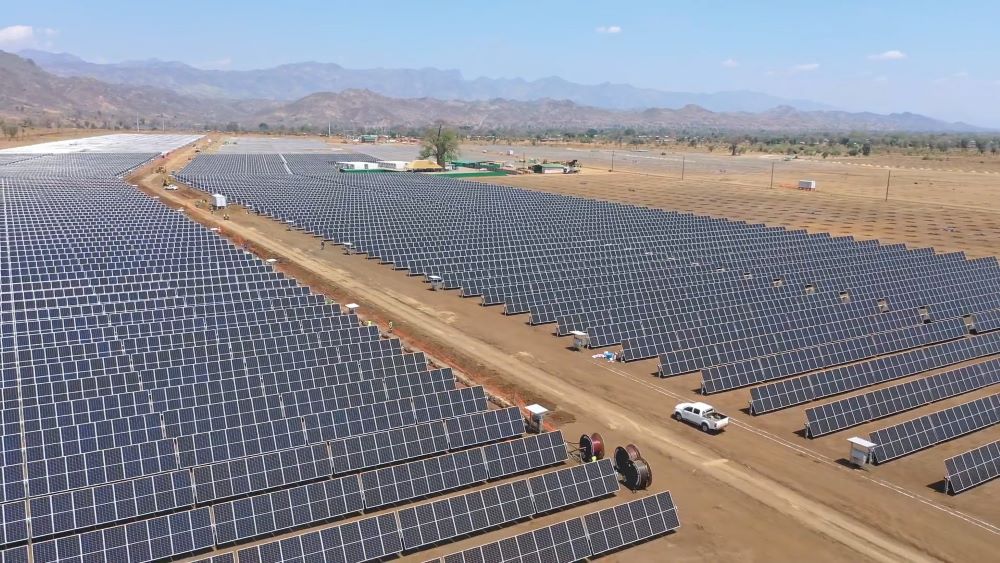Olivia Carballo is managing director in the emerging market alternative credit team at Ninety One.
In rural locations across Africa, renewable energy infrastructure such as hydroelectric dams, wind turbines and solar panels have been developed at impressive speed over the last ten years.
However, despite an increase in renewables production, the energy is unable to benefit communities and businesses plugged into national grids due to the lack of battery storage systems.
Powering Nigerian developers’ laptops, fuelling Ugandan taxi drivers’ electric boda bodas, or refrigerating Senegalese researchers’ vaccines will require tremendous amounts of power supply. But the benefits of renewables will only be realised if the right infrastructure is in place.
The financing of utility-scale battery storage systems, which remains a nascent technology in Africa, is key to ensuring that African countries secure reliable access to electricity, enabling communities to benefit from new infrastructure projects coming online.
Next-generation tech more affordable
Historically, funding for Battery Energy Storage System (BESS) has been a challenge due to the high cost of the technology. But recent advancements in battery technology efficiency signal a shift towards more affordable solutions.
The price of lithium-ion batteries, which reached a record low of $139/kWh in 2023, is set to drop further to $80/kWh by 2030, according to research firm BloombergNEF. This offers a cost-effective solution for sparsely populated areas such as rural West Africa.
Simultaneously, pumped hydro storage – which consists of two water reservoirs at different elevations that generate power as water moves between them – presents a unique opportunity in regions like Central Africa.
Despite solar surge, world off track for COP28 renewable energy target
Countries such as Cameroon, whose pumped-storage potential is estimated at 34 GWh, can leverage hydropower for base generation while retaining the flexibility to integrate wind and solar energy into the mix.
Another emerging innovation to increase BESS uptake is the development of battery-as-a-service (BaaS) business models, which aim to motivate residential, commercial and industrial consumers to invest in battery storage technology through a leasing model, reducing upfront costs.
This creates opportunities for electricity transmission and distribution companies to upgrade dilapidated infrastructure with BESS technology, ensuring that energy is evenly distributed to the grid while minimising capital expenditure.
Energy storage hotspot
Beyond meeting local and regional energy needs, battery storage has the potential to stimulate the growth of a strategic new industrial sector in Africa. The continent holds at least one-fifth of the world’s reserves in a dozen minerals that are critical for the energy transition, including the lithium used for electric vehicle batteries and grid-scale storage.
Strengthening local supply chains and manufacturing could position Africa as a global leader in battery technology, adding value to its raw materials through battery component production for global markets.

Golomoti’s 10MWh BESS facility – the first of its kind in sub-Saharan Africa outside South Africa – being delivered in Dedza, Malawi. (Photo: PIDG/ InfraCo)
Several African countries have shown recent interest in addressing the lack of storage capacity by joining the BESS Consortium at COP28, led by the Global Energy Alliance for People and Planet (GEAPP), in partnership with development banks including the AfDB, Africa50 and the World Bank.
Egypt, Ghana, Kenya, Malawi, Mauritania, Mozambique, Nigeria and Togo are among a group of first-mover countries committed to deploying 5GW of energy storage technology globally by 2027.
But governments cannot act alone and will be unable to achieve these ambitious targets without tapping into international pools of capital.
Private investment
Last year, the Emerging Africa Infrastructure Fund (EAIF), a Private Infrastructure Development Group (PIDG) company managed by Ninety One, a global investment manager, invested $19 million in a 19MW solar PV and 7 MWh energy storage plant in Mozambique.
Parts of the country experience frequent and prolonged electricity outages, which constrains economic productivity and limits people’s ability to earn a living. Our funding commitments are strengthening energy storage capacity in the country’s remote Niassa region, improving access to stable power supply and catalysing more investment in local renewable energy projects.
InfraCo Africa, a PIDG company, also partnered with JCM Power to co-develop the 20MWAC Golomoti Solar plant in Malawi. The $8-million project includes a 10MWh battery storage system – the first of its kind in sub-Saharan Africa outside South Africa. By stabilising the grid, Golomoti Solar reduces the country’s reliance on costly diesel generators and hydro power, which has been disrupted by rainfall fluctuations.
Progress on structure for new global climate finance goal but trickier divides persist
These projects provide critical battery storage facilities in countries that are often overlooked by international investors, addressing challenges raised by the intermittency of renewable power generation to enhance the resilience and stability of electrical grids in frontier markets.
BESS is essential to unlock Africa’s renewable energy potential. With its wealth of raw materials and growing interest in manufacturing capacity, the continent is primed to become a global leader in the battery storage value chain.
However, despite this potential, the sector remains underdeveloped. Investors, governments and development partners must urgently come together to ensure Africa captures the full benefits of its renewable resources, both for domestic development and as a crucial player in the global energy transition.
Ninety One is a large third-party investor in private and public credit, equities and sovereign debt across emerging markets. The Emerging Africa Infrastructure Fund (EAIF) is managed by and fully integrated into Ninety One’s African private credit investment platform. Ninety One manages the entire process on behalf of the EAIF. It markets the fund, seeks projects, evaluates loan applications, including due diligence, manages transaction administration and monitors the loan portfolio.
